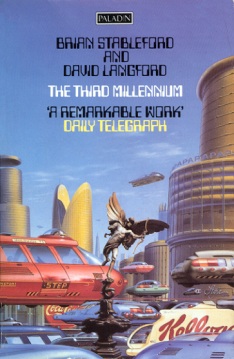| Home |
| Novels |
| Collections |
| Translations |
| Non-Fiction |
| Short Stories |
| Anthologies |

In the last thousand years humanity has witnessed enormous technological, social and political change. Most of this has come during the past 150 years, and there are many who believe that the speed of change is accelerating. What, then, will happen in the next thousand years?
The answers are in The Third Millennium. Firmly rooted in current knowledge and written with absolute conviction, this remarkable future history contains considerable reassurance for mankind, but also much that is deeply disturbing - culminating in a possible and hitherto unimagined end to homo sapiens.
Readers will learn of:
· The last nuclear war - and an
end to nuclear weapons
· The 'Greenhouse crisis' and
the flooding of major cities
· The genetic engineering of giant
fish, infinitely reproducing beefsteak, living cars and houses
· Sex in the Twenty-eighth Century
A great deal can happen in one thousand years and it is all reported in The Third Millennium. This book presents the facts required to steer the human race successfully through its greatest adventure yet.
'This is a lovely book. Intelligently written, and most impressive in its
imaginative sweep' - INTERZONE
Published by Sidgwick and Jackson in July 1985
Published by Paladin Books in 1988
ISBN: 0-586-08595-5
Cover by Chris Moore
Translated into French as Le Troisième Millénaire
Translated into Japanese

